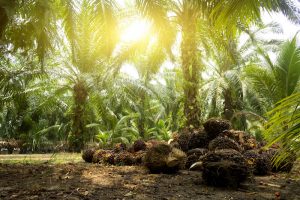Ferrero retains leading manufacturer status in WWF palm oil scorecard

Ferrero has again emerged as the highest rated environmentally performing manufacturer in the World Wildlife Fund’s 2021 edition Palm Oil Buyers Scorecard rating the strength of on-the-ground sustainability achievements, reports Neill Barston.
The Italian-founded confectionery company was in overall second place of 227 international businesses, scoring 21.7 out of 24 in the review, which examined corporate commitments, transparency and purchasing patterns.
The sixth edition of the WWF report highlights progress made within the palm oil sector that is a major factor within sweets and snacks markets globally, has seen ongoing concerns expressed by industry observers over harvesting practices and delivering truly sustainable sourcing and impact on deforestation in rural locations including Indonesia, Thailand and Malaysia.
The sector has increasingly come under pressure to improve rates of transparency in farming operations – with satellite mapping of farming practices now being increasingly championed in driving digital tracking of company performance.
For its part, Ferrero built on the key performance it achieved last year finished just behind retailer Coop Switzerland (with a score of 22.39 out of 24), claiming top place in its review.
Other major confectionery businesses featuring within the study included Mars, finishing fifth (with 21.13), Hershey were 9th (on 19.93), with other key groups also featuring in the rankings – Barry Callebaut 34th) with 16.49, Nestle 48th on 15.2), and Puratos 67th registering a score of 14.27 on the WWF scale. Mondelez just made the top 100 (96th, recording 12.18, penalised for a rating of two out of 10 regarding its sustainable oil purchasing.
Meanwhile, ice cream manufacturer Froneri International found itself among the lowest rated within the sweets and snacks sector. It scored just 3, rated five out of 10 for its sustainable palm oil purchasing, but was rated 0 for on-the-ground action.
As Ferrero noted, as a baseline, in 2015, the business was one of the first global companies to source sustainable palm oil that is 100% RSPO (Roundtable on Sustainable Palm Oil) Certified Segregated and traceable back to plantations.

The company’s additional initiatives have reportedly been guided by three key areas outlined with its latest Palm Oil Charter: human rights & social practices, environmental protection and sustainability, and supplier transparency. This has been underlined by its membership of POIG (Palm Oil Innovation Group) and HCSA (High Carbon Stock Approach).
Mario Abreu, Ferrero’s Head of CSR and Sustainability said: “With the understanding that there are many complex issues to be addressed within the palm oil industry, working towards the development of a more responsible supply chain for us is a top priority, not only for palm oil, but for all our raw materials. For this reason, we are proud that WWF has once again recognized our commitments and concrete actions to help shape a better future, together.”
Furthermore, the group has pledged to ‘go beyond sourcing 100% RSPO Certified Segregated palm oil,’ with a renewed action plan. This includes schemes aimed at improving smallholders’ working conditions and build their resilience.
It is also seeking to actively protect existing forests and/or restoring natural forest areas to generate positive carbon and biodiversity impacts, in partnership with suppliers. As regards supplier transparency, the business said it was working towards achieving full traceability for all sourcing through to the estate level, done by leveraging innovative technologies such as the Starling satellite monitoring tool.
“Ferrero’s Palm Oil Action Plan outlines how our company is holistically implementing concrete initiatives that support our responsible palm oil supply chain commitments.” commented Marco Gonçalves, Ferrero’s Chief Procurement & Hazelnut Company Officer.
He added, “By working closely with our suppliers and partners, we are upholding full compliance standards through a continuous improvement approach to responsible sourcing that aims to help generate environmental, economic and social benefits for all.”
